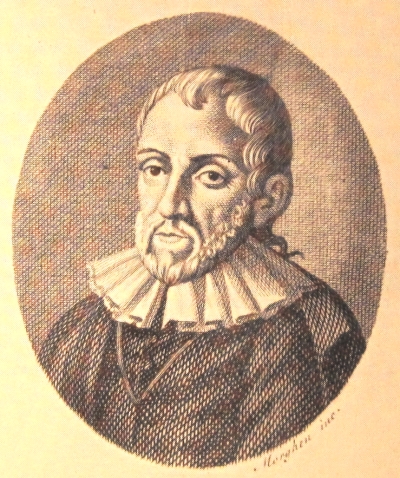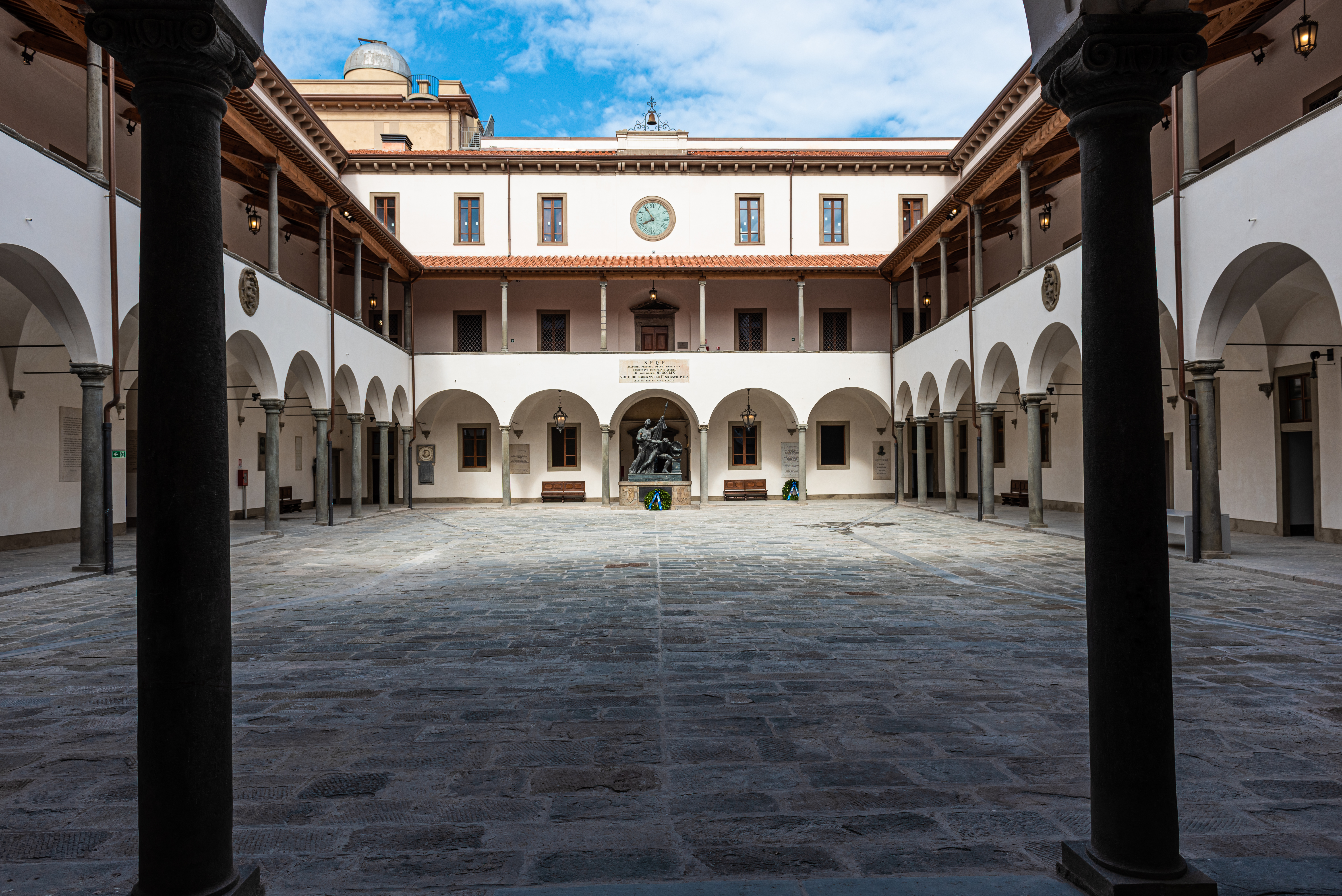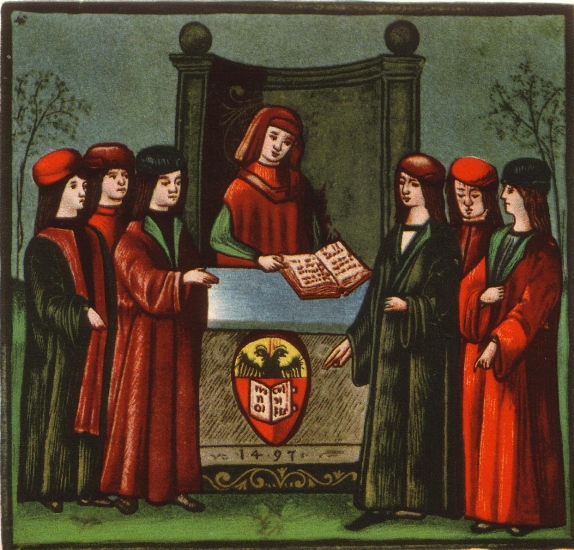|
Francesco Fiorentino (philosopher)
Francesco Fiorentino (Sambiase, 1 May 1834The historian L. Lo Bianco indicates his birth date as 10 May 1834. – Naples, 22 December 1884) was an Italian philosopher and historiographer. Biography He was born in Sambiase (now Lamezia Terme) on May 1, 1834. His father was Gennaro Fiorentino, a chemist and a pharmacist, and his mother was Saveria Sinopoli. He was educated by Giorgio and Bruno Sinopoli, the uncle and the brother of his mother, respectively. He studied literature and theology, but he quit in 1851. After two years spent in Sambiase studying theology, he moved to Catanzaro where he studied jurisprudence, but he couldn't graduate because he was just 19. Even if he was short-sighted and he never shot a gun before, Fiorentino attempted to take part in the Expedition of the Thousand, but he failed. When he met Giuseppe Garibaldi in Maida, Fiorentino's quoted to have said to him "Viva l'annessione, vogliamo l'annessione!", which in English is "Horray for the ... [...More Info...] [...Related Items...] OR: [Wikipedia] [Google] [Baidu] |
Naples
Naples (; it, Napoli ; nap, Napule ), from grc, Νεάπολις, Neápolis, lit=new city. is the regional capital of Campania and the third-largest city of Italy, after Rome and Milan, with a population of 909,048 within the city's administrative limits as of 2022. Its province-level municipality is the third-most populous metropolitan city in Italy with a population of 3,115,320 residents, and its metropolitan area stretches beyond the boundaries of the city wall for approximately 20 miles. Founded by Greeks in the first millennium BC, Naples is one of the oldest continuously inhabited urban areas in the world. In the eighth century BC, a colony known as Parthenope ( grc, Παρθενόπη) was established on the Pizzofalcone hill. In the sixth century BC, it was refounded as Neápolis. The city was an important part of Magna Graecia, played a major role in the merging of Greek and Roman society, and was a significant cultural centre under the Romans. Naples served a ... [...More Info...] [...Related Items...] OR: [Wikipedia] [Google] [Baidu] |
Maddaloni
Maddaloni (Campanian: ) is a town and ''comune'' of Campania, Italy, in the province of Caserta, about southeast of Caserta, with stations on the railways from Caserta to Benevento and from Caserta to Naples. Main sights The city is at the base of one of the Tifata hills, the towers of its medieval castle and the Church of San Michele crowning the heights above. The fine old palace of the Caraffa family (once dukes of Maddaloni), the old college now named after Giordano Bruno, and the institute for the sons of soldiers are the chief points of interest. The Gothic church of Santa Margherita has a series of 15th-century frescoes by the Florentine painter Giovanni Balducci. The church of the Annunziata has a series of early 17th century paintings that decorate the rich wooden ceiling. Many of the works were patronized by the local feudal lords, the Carafa family. The town has two museums, the Museo Civico and the Museo Archeologico, which contains pre-Roman tombs and objects fro ... [...More Info...] [...Related Items...] OR: [Wikipedia] [Google] [Baidu] |
1834 Births
Events January–March * January – The Wilmington and Raleigh Railroad is chartered in Wilmington, North Carolina. * January 1 – Zollverein (Germany): Customs charges are abolished at borders within its member states. * January 3 – The government of Mexico imprisons Stephen F. Austin in Mexico City. * February 13 – Robert Owen organizes the Grand National Consolidated Trades Union in the United Kingdom. * March 6 – York, Upper Canada, is incorporated as Toronto. * March 11 – The United States Survey of the Coast is transferred to the Department of the Navy. * March 14 – John Herschel discovers the open cluster of stars now known as NGC 3603, observing from the Cape of Good Hope. * March 28 – Andrew Jackson is censured by the United States Congress (expunged in 1837). April–June * April 10 – The LaLaurie mansion in New Orleans burns, and Madame Marie Delphine LaLaurie flees to France. * April 14 – The Whig Party is officially named by Unit ... [...More Info...] [...Related Items...] OR: [Wikipedia] [Google] [Baidu] |
People From Lamezia Terme
A person ( : people) is a being that has certain capacities or attributes such as reason, morality, consciousness or self-consciousness, and being a part of a culturally established form of social relations such as kinship, ownership of property, or legal responsibility. The defining features of personhood and, consequently, what makes a person count as a person, differ widely among cultures and contexts. In addition to the question of personhood, of what makes a being count as a person to begin with, there are further questions about personal identity and self: both about what makes any particular person that particular person instead of another, and about what makes a person at one time the same person as they were or will be at another time despite any intervening changes. The plural form " people" is often used to refer to an entire nation or ethnic group (as in "a people"), and this was the original meaning of the word; it subsequently acquired its use as a plural ... [...More Info...] [...Related Items...] OR: [Wikipedia] [Google] [Baidu] |
1884 Deaths
Events January–March * January 4 – The Fabian Society is founded in London. * January 5 – Gilbert and Sullivan's ''Princess Ida'' premières at the Savoy Theatre, London. * January 18 – Dr. William Price attempts to cremate his dead baby son, Iesu Grist, in Wales. Later tried and acquitted on the grounds that cremation is not contrary to English law, he is thus able to carry out the ceremony (the first in the United Kingdom in modern times) on March 14, setting a legal precedent. * February 1 – ''A New English Dictionary on historical principles, part 1'' (edited by James A. H. Murray), the first fascicle of what will become ''The Oxford English Dictionary'', is published in England. * February 5 – Derby County Football Club is founded in England. * March 13 – The siege of Khartoum, Sudan, begins (ends on January 26, 1885). * March 28 – Prince Leopold, the youngest son and the eighth child of Queen Victoria and Prin ... [...More Info...] [...Related Items...] OR: [Wikipedia] [Google] [Baidu] |
Bernardino Telesio
Bernardino Telesio (; 7 November 1509 – 2 October 1588) was an Italian philosopher and natural scientist. While his natural theories were later disproven, his emphasis on observation made him the "first of the moderns" who eventually developed the scientific method. Biography Telesio was born of noble parentage in Cosenza, a city in Calabria, Southern Italy (Kingdom of Naples). He was educated in Milan by his uncle, Antonio, himself a scholar and a poet of eminence, and afterwards in Rome and Padua. His studies included a wide range of subjects, classics, science and philosophy, which constituted the curriculum of the Renaissance savants. Thus equipped, he began his attack upon the medieval Aristotelianism which then flourished in Padua and Bologna and he wrote some short poems, brought back to light by Luca Irwin Fragale in 2010. In 1553 he married and settled in Cosenza, becoming the founder of the Cosentian Academy. From 1544 to 1550 and after 1565 he lived in the hous ... [...More Info...] [...Related Items...] OR: [Wikipedia] [Google] [Baidu] |
Pietro Pomponazzi
Pietro Pomponazzi (16 September 1462 – 18 May 1525) was an Italian philosopher. He is sometimes known by his Latin name, ''Petrus Pomponatius''. Biography Pietro Pomponazzi was born in Mantua and began his education there. He completed his studies at the University of Padua, where he became a medical doctor in 1487. In 1488 he was elected extraordinary professor of philosophy at Padua, where he was a colleague of Alessandro Achillini, the Averroist. From about 1495 to 1509 he occupied the chair of natural philosophy until the closing of the schools of Padua, when he took a professorship at Ferrara where he lectured on the Aristotle's ''De anima'' (the soul) and entelechy. In 1512 he was invited to Bologna where he remained until his death and where he produced all his important works. The predominance of medical science at Padua had cramped his energies, but at Ferrara, and even more at Bologna, the study of psychology and theological speculation were more important. In 1 ... [...More Info...] [...Related Items...] OR: [Wikipedia] [Google] [Baidu] |
Italian Parliament
The Italian Parliament ( it, Parlamento italiano) is the national parliament of the Italian Republic. It is the representative body of Italian citizens and is the successor to the Parliament of the Kingdom of Italy (1861–1943), the transitional National Council (1945–1946) and the Constituent Assembly (1946–1948). It is a bicameral legislature with 600 elected members and a small number of unelected members (''senatori a vita''). The Italian Parliament is composed of the Chamber of Deputies (with 400 members or ''deputati'' elected on a national basis), as well as the Senate of the Republic (with 200 members or ''senatori'' elected on a regional basis, plus a small number of senators for life or ''senatori a vita'', either appointed by the President of the Republic or former Presidents themselves, ''ex officio''). The two Houses are independent from one another and never meet jointly except under circumstances specified by the Constitution of Italy. By the Constitution, t ... [...More Info...] [...Related Items...] OR: [Wikipedia] [Google] [Baidu] |
University Of Pisa
The University of Pisa ( it, Università di Pisa, UniPi), officially founded in 1343, is one of the oldest universities in Europe. History The Origins The University of Pisa was officially founded in 1343, although various scholars place its origins in the 11th century. It is certain, however, that from the middle of the 12th century Pisa had a “Universitas” in the original sense of the word, that is, a group of students who gathered around masters. It was during this period that Leonardo Fibonacci was born and worked. He was one of the greatest mathematicians in history who, through his work, synthesized the spirit and processes of Greek geometry and the tools of Arabic mathematics for the first time in Europe. The papal seal “In Supremae dignitatis”, issued by Pope Clement VI on 3 September 1343, granted the Studium in Pisa the title of Studium Generale with various exclusive privileges, making it universally recognised. In medieval times, the Studium Generale wa ... [...More Info...] [...Related Items...] OR: [Wikipedia] [Google] [Baidu] |
Theoretical Philosophy
The modern division of philosophy into theoretical philosophy and practical philosophyImmanuel Kant, ''Lectures on Ethics'', Cambridge University Press, 2001, p. 41 ("On Universal Practical Philosophy"). Original text: Immanuel Kant, ''Kant’s Gesammelte Schriften'', Band XXVII – Moralphilosophie, 1. Hälfte, 1974p. 243 has its origin in Aristotle's categories of natural philosophy and moral philosophy. The one has theory for its object, and the other practice. __forcetoc__ Overview In Denmark, Finland, Germany, Netherlands, Sweden, and United States courses in theoretical and practical philosophy are taught separately, and are separate degrees. Other countries may use a similar scheme—some Scottish universities, for example, divide philosophy into logic, metaphysics, and ethics—but in most universities around the world philosophy is taught as a single subject. There is also a unified philosophy subject in some Swedish universities, such as Södertörns Högskola. Theoreti ... [...More Info...] [...Related Items...] OR: [Wikipedia] [Google] [Baidu] |
Philosophy Of History
Philosophy of history is the philosophical study of history and its discipline. The term was coined by French philosopher Voltaire. In contemporary philosophy a distinction has developed between ''speculative'' philosophy of history and ''critical'' philosophy of history, now referred to as ''analytic''. The former questions the meaning and purpose of the historical process whereas the latter studies the foundations and implications of history and the historical method. The names of these are derived from C. D. Broad's distinction between critical philosophy and speculative philosophy. Origins In his '' Poetics'', Aristotle (384–322 BCE) maintained the superiority of poetry over history because poetry speaks of what ''ought'' or ''must'' be true rather than merely what ''is'' true. Herodotus, a fifth-century BCE contemporary of Socrates, broke from the Homeric tradition of passing narrative from generation to generation in his work "Investigations" (Ancient Greek: Ἱστ ... [...More Info...] [...Related Items...] OR: [Wikipedia] [Google] [Baidu] |
University Of Bologna
The University of Bologna ( it, Alma Mater Studiorum – Università di Bologna, UNIBO) is a public research university in Bologna, Italy. Founded in 1088 by an organised guild of students (''studiorum''), it is the oldest university in continuous operation in the world, and the first degree-awarding institution of higher learning. At its foundation, the word ''universitas'' was first coined.Hunt Janin: "The university in medieval life, 1179–1499", McFarland, 2008, , p. 55f.de Ridder-Symoens, Hilde''A History of the University in Europe: Volume 1, Universities in the Middle Ages'' Cambridge University Press, 1992, , pp. 47–55 With over 90,000 students, it is the second largest university in Italy after La Sapienza in Rome. It was the first place of study to use the term ''universitas'' for the corporations of students and masters, which came to define the institution (especially its law school) located in Bologna. The university's emblem carries the motto, ''Alma Mater Studio ... [...More Info...] [...Related Items...] OR: [Wikipedia] [Google] [Baidu] |
_1938.jpg)




.jpg)
